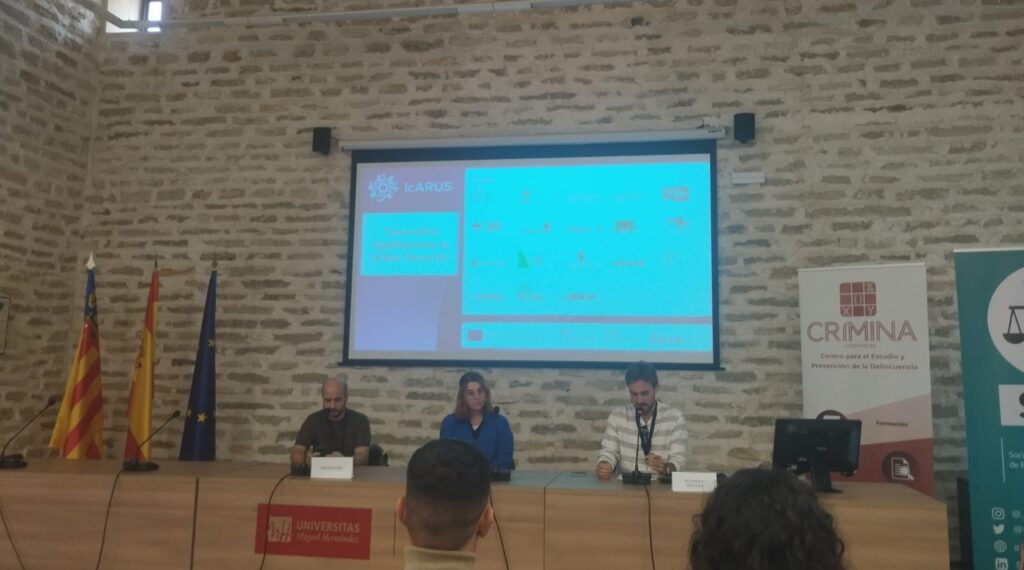Social Acceptability in IcARUS – Plus Ethics at the first Congress of Students of Criminology
In the quest for safer communities, crime prevention programmes are pivotal in shaping strategy and policy. However, assessing their impact extends beyond crime statistics. Plus Ethics, a non-profit devoted to ethical outcomes and positive societal impact, explores social acceptability in crime prevention and will publish later this year a report on emerging ethical challenges.
Expected and unexpected impacts of crime prevention programmes
Plus Ethics acknowledges the need to evaluate crime prevention programmes for optimal resource allocation and decision-making. Research indicates that some programmes may inadvertently heighten insecurity, especially with police interaction or neighbourhood watch schemes. Anticipating potential unintended impacts through evaluations is crucial. Resource allocation for crime control, particularly in an incrementalist model, must be fully justified, integrating all values into programme design and outcomes pursuit.
The literature on ‘societal impact assessment’ began to grow about 20 years ago, and since 2021, Horizon Europe has been emphasising the importance of ‘ensuring ethical outcomes that are supported by society’ in security research.
An empirical study under way
Responsible research, as underscored by the European Commission, is linked to citizen engagement. The legitimacy, acceptability and desirability of policies are defined by citizens. Recognising this, Plus Ethics is planning an empirical study in the first half of 2024, using the nominal group technique to gather scientific evidence from the IcARUS project’s six partner cities. The objective is to identify emerging moral needs and assess the acceptability and social impact of the tools and methodologies developed in IcARUS.
This initiative responds to the broader call for increased social acceptability in security research and technology. Security research and policy often lack transparency, exclude stakeholders and breed public mistrust. Involving stakeholders in assessing policy acceptability and identifying risks, challenges, and solutions is vital for maximising positive social impacts.
Plus Ethics presents IcARUS at the Congress of Criminology Students in Elche
The first Congress of Criminology Students held at the Miguel Hernández University of Elche (Spain) on 28 November provided a platform for Plus Ethics to present the IcARUS project, in which it is a partner. The presentation detailed completed work and future plans for criminological and social science research within the project.
IcARUS aims to redefine ethical considerations in crime prevention, aligning with a global shift towards a comprehensive approach using social sciences for a holistic understanding of societal change.

In conclusion, Plus Ethics leads in shaping ethical and socially acceptable crime prevention programs. As IcARUS unfolds, the organisation maintains transparency, accountability, and community engagement in all its undertakings. Its commitment extends beyond reducing crime to building trust, ensuring fair treatment and maximising positive social impact.
In the evolving crime prevention landscape, Plus Ethics exemplifies the paradigm shift towards responsible research and innovation for a safer and more inclusive society.

subscribe to be the first to receive icarus news!
Know what we've been up to and the latest on the European urban security frame.








